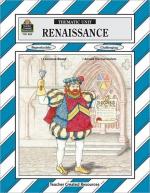|
This section contains 4,899 words (approx. 17 pages at 300 words per page) |

|
Protestantism.
If the sixteenth century represented a great age of secular musical achievement and innovation, religious music was to be equally transformed by the enormous religious changes that occurred at the time. The Reformation began with Martin Luther's attack on the sale of indulgences in 1517, and, over the decade that followed, a number of groups with teachings focused on reforming the Catholic Church appeared throughout Northern Europe. While some Reformation figures—notably Ulrich Zwingli in Zürich—aimed to purify the church of music altogether, most retained some place for it in the new Protestant services. The developing Lutheran Church was the most accepting of medieval musical practices. Throughout Germany many of the territorial churches reformed along the lines of Luther's model kept a great deal of the musical tradition of the medieval church alive. Often new German...
|
This section contains 4,899 words (approx. 17 pages at 300 words per page) |

|




